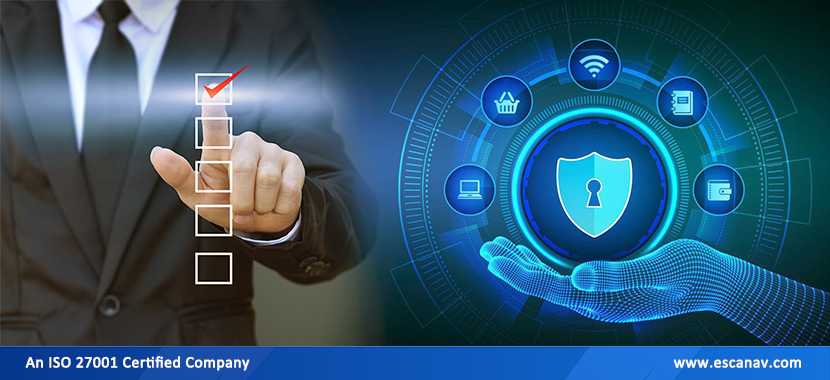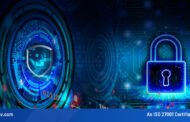Having digital assets requires cyber security for every business. Using this checklist, you will be able to understand how to protect your home office or small office.
Cybercriminals target even the smallest businesses. But what is the ideal level of preparedness for entrepreneurs with limited budgets, limited time, and no IT team?
The security of small businesses does not have to be complicated or stressful. Using this small business cyber security checklist can help you choose the right measures to protect your small business.
1. Identify your most valuable assets
Cyber risk assessments may seem too time-consuming for small businesses, but knowing your most valuable assets will help you protect them. Organize your most important information, including customer information, payment information, website, recipes, ideas, finances, and social media accounts.
2. You need a small business antivirus, and more
As cyber threats continue to evolve, there is no single tool that can stop them. Having an eScan antivirus is vital for keeping malware out, but you should also be protected by multiple layers. Protect all your devices, your privacy, and your online identity with one solution.
3. Simplify what you can
You would want to avoid complication in all areas if you are a small business owner with a million and one things to do. The greatest security is the one that is so simple to use that you will utilize it and install it on each employee device. Choose an all-in-one internet security programme that is simple to install and runs in the background without slowing down your computer or phone.
4. Secure your mobile devices
There are many things small businesses have to deal with on a daily basis. You can carry out work from a hotel, cafe, library, or another country if you are happy with the flexibility, but can you guarantee that it is safe? Accessing business information on mobile devices requires protection. You can protect yourself from hackers and other snoopers by using a VPN while connected to a public WiFi network.
5. Use strong passwords
We all have dozens or hundreds of passwords. It is important to keep them private and difficult to guess. Cybercriminals would never be able to crack a system involving so many random characters. Using a password manager is the best way to secure your passwords and, consequently, your online accounts and identity.
6. Protect your online accounts and identity
In the past few years, popular online business services like Facebook, LinkedIn, Google, Dropbox and others have been exposed to numerous data breaches. In the case of freelancers and small business professionals, losing personal information stored on these accounts can be a huge problem. Maintaining strong passwords, using multi-factor authentication, and avoiding shared accounts will keep your online accounts safe. Check if your email address has been exposed to data breaches using MailScan.
7. Stop ransomware
There is no doubt that ransomware is one of the most prominent threats small businesses face today. Your devices or data may be locked, and a sizable fee may be requested in order to unlock them. Paying the ransom is never a good idea since there is no guarantee you will get your access back. Because ransomware can be costly, it makes sense to protect yourself against it.
8. Backup and update
Make regular backups of your data. When you encounter ransomware, your backups will ensure that you can get access to your data. Be sure to keep your software and devices updated. Vulnerabilities in software are security gaps that enable cyber criminals to attack your systems easily.
9. Protect your money
Banks are a common target for fraud. Cyber criminals are trying to phish your banking credentials by setting up fake websites that look identical to your online bank login page. Ensure your money is protected when paying invoices or making online purchases for your business. An effortless way to stay safe is a banking protection software that lets you know when you enter a safe banking site and secures your connection to that site.
10. Good online habits
The majority of cyber-attacks begin when an unsuspecting individual downloads a malicious attachment or fills out their credentials on a phishing website. For this reason, even the smallest companies should train their employees about cyber security. Keeping your business data and reputation safe requires awareness, a healthy dose of skepticism, good password practices, and smart data sharing practices. For a small business, cyber security is important, since your actions also affect your customers’ and partners’ security. With a few simple habits and comprehensive internet security for small business, you can run your business without worrying.
eScan Total Security Suite – v22 includes everything you need to keep your small business protected
A small business owner manages several responsibilities and must continuously find time for all of them. eScan Total Security Suite, an all-in-one cyber security package for small businesses, includes Safe small office antivirus to protect you against ransomware and other malware, and to secure your money and browsing, Freedom VPN to protect your mobile devices and hybrid work on the go, and ID PROTECTION to monitor your online identity, create and store strong unique passwords. Total Security means more time to focus on increasing your revenue. An easy-to-use online portal allows you to add additional licences and provide installation links to your staff. In case you require assistance with anything, a helpful professional support is always available.







